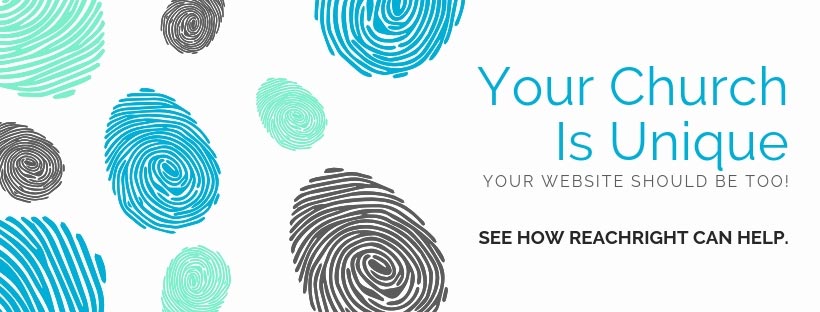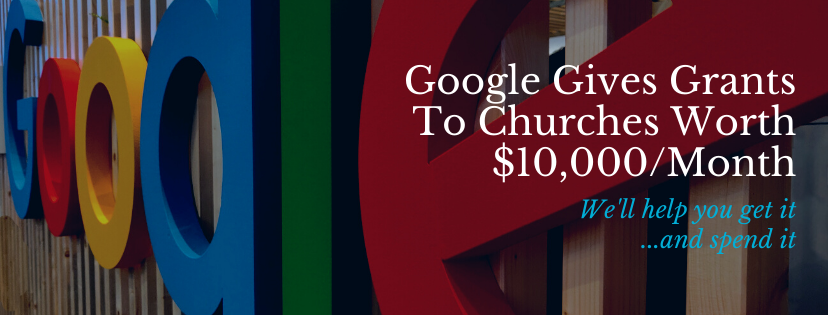Free church websites sound like the ideal solution for getting your church online without any budgetary issues. But, what’s the catch?
Sometimes, things really are too good to be true. While there are some reputable free website builders, even they have issues that could drastically affect your site’s performance and ranking.
Before you try out a free site, consider whether the cons are really worth it. After all, you don’t want to invest hours of your time building a site that won’t help your church grow.
Table of contents – Free Church Websites
- 1. They’re Not Really Free
- 2. You Get Shared Hosting
- 3. Design Options Are Extremely Limited
- 4. You May Not Own Your Content
- 5. Moving Isn’t Always Easy
- 6. There May Be Traffic Limits
- 7. Storage Limits May Apply
- 8. The URL Isn’t Professional
- 9. Ranking On Google Is Harder
- 10. Site Performance Suffers
- 11. Your Site May Have Ads
- 12. Free Website Hosts Randomly Disappear
- 13. Your Site Could Be Deleted Without Warning
- 14. Less Security
- 15. May Not Be Mobile-Friendly
- 16. Little To No Customer Service
- 17. Analytics Are Limited
- 18. No Branding Options
- 19. Your Data Is Up For Grabs
- More On Free Church Websites

1. They’re Not Really Free
This is probably the biggest issue with any free church websites. Despite the shiny $0 price tag initially, they’re not as free as they seem. In fact, you’ll find there are quite a few extras you’ll want to buy to make your church website seem more professional.
For instance, you might want to upgrade to premium themes versus the basic themes that no one really wants to use. You’ll also want to get your own domain name, which costs extra too. On top of that, there are upgrades for speed, storage, number of website pages (every church should have at least six), removing ads, removing branding and more. Think of it as getting a free salad. The lettuce is free, but you’ll need to pay for any other vegetables and fruits.
Considering there are many other limitations, a free website that isn’t really free doesn’t sound like such a good deal. For an individual hosting a simple, personal blog, they’re great since upgrades are necessary, but you’ll need upgrades in order to ensure your church website makes a great first impression.
2. You Get Shared Hosting
To be fair, shared hosting isn’t just an issue with free church websites. Many webhosts offer shared hosting as a more affordable option. The only problem is free website builders and hosts often cram as many websites onto the same server as possible to save money.
Shared hosting means you’re literally sharing resources with other websites. If the server can only handle a set amount of traffic at a time, other sites with more traffic could take away bandwidth from your church website. This makes it slower and more difficult for your visitors to access. Plus, if one site gets hit with malware, your site could be at risk too. With free sites and hosts, you typically don’t get a choice with the type of hosting unless you pay for an upgrade, which may not even be available.
Dedicated hosting costs more, but helps boost overall site performance. Some web hosts offer shared dedicated hosting where resources are evenly divided among all shared sites. They also put security measures in place to prevent security problems from one site from affecting other sites. Forbes breaks down shared vs dedicated hosting to better decide which is best for you.
3. Design Options Are Extremely Limited
If you’ve ever checked out a free website builder, you might be less than impressed with the design choices. Most templates look identical and there isn’t much you can do to customize them outside of a few color changes. Sometimes, you can’t even change block sizes or positions.
What this means is your church’s site is likely to look like a cookie cutter of numerous other free sites. It doesn’t reflect your church’s branding. And, it could show visitors that you’re not invested in interacting with an online audience. This obviously doesn’t mean you don’t want to, but people are quick to judge online.
4. You May Not Own Your Content
Buried deep in terms and conditions and privacy polices and so on is often some sneaky legalese that essentially says you don’t own your own content. Free church websites may reserve the right to use any content you upload for their own purposes. This means snippets of blog posts could be taken out of context. Pictures of your church members could be sold and used in ads.
Even if you remove everything, there isn’t a guarantee that the host doesn’t have a copy of your content. While anyone can steal content online, agreeing to a contract that gives up your rights makes a free site seem a lot less free.
5. Moving Isn’t Always Easy
Luckily, this isn’t as difficult as it used to be, especially if you’re moving to WordPress or the free site builder/host you used also uses WordPress. However, in many cases, trying to transfer your church website to a new host doesn’t always go as planned when using a free option. These platforms don’t always have the tools in place to safely move all your content over. Plus, there might not even be a way to back up your website.
You never know when you might want to move your church’s website. Maybe you want to move to a premium host with different features as your church grows. With a free site, you may have to start from scratch versus moving everything.

6. There May Be Traffic Limits
Many free church websites have to deal with traffic or bandwidth limits. This is the amount of traffic you’re allowed at any one time. Some hosts even restrict traffic based on a weekly or monthly allowance. For small churches that just use their sites to keep members updated on events and post basic blogs, this may be enough. However, if you want to use your church website to grow your church, you’ll want to see your traffic continue to increase.
If your site reaches its limit, visitors see an error message versus your site. This makes a horrible first impression. Plus, if you’re interested in live streaming from your website or hosting sermon videos, it might not even be possible with a free site.
7. Storage Limits May Apply
Just like bandwidth, storage limits usually apply. Beware of any free church websites that promise unlimited bandwidth or storage. There are always catches. With storage limits, you won’t be able to upload nearly as many images or videos. This restricts how much you can do with your site and can even make it less appealing to visitors. Even when images and videos are optimized for the web, all the files add up over time. Considering how much people love watching videos online, you definitely want to make sure your church website has enough storage space for them.
8. The URL Isn’t Professional
Most free platforms also give you a free URL. While that sounds great in theory, these are unprofessional URLs. For instance, they’re typically sitename.siteplatform.com. It’s immediately obvious that your site was built using a free platform. Wix is a popular free site builder, which means XYZ church would be xyzchurch.wix.com. If you had to choose between xyzchurch.com or xyzchurch.wix.com, which would would prefer?
Most visitors consider the former to be not only more professional, but more trustworthy. Sadly, many spam sites use free builders and hosts, making these types of URLs seem more suspicious.
9. Ranking On Google Is Harder
Depending on the free platform you choose, it might be harder to rank on Google. While there are hundreds of Google ranking factors, along with some the public will probably never know, building and hosting your site on a domain known for spammy sites could hurt your ability to rank. For instance, if your URL is churchname.siteplatform.comand SitePlatform has been flagged by Google as potential spam, your site won’t show up as often, if at all, in search results.
Typically, having your own domain name helps. However, free sites typically keep some of the platform’s code in them, flagging that the site may still be suspicious, at least to Google.
10. Site Performance Suffers
Since you’re sharing resources with an unknown number of other sites, your site’s performance isn’t going to be the best. Unless resources are allocated equally, pages will load slower, which doesn’t make visitors happy. Plus, free church websites aren’t always hosted on the best technology, which can further slow down your site. Even a single second of lag can negatively affect your website.

11. Your Site May Have Ads
While people are used to seeing ads on websites, the site owner typically chooses ads that are appropriate for their brand. With free websites, you don’t get any control over the type of ads that appear. Your visitors could see full screen pop-ups, inappropriate side-bar ads and more. The wrong type of ad could change how visitors see your church. You deserve to have full control over any ads on your site, including whether you have ads or not.
12. Free Website Hosts Randomly Disappear
There are quite a few free website builders that have been around for years. Others have come and gone after just a few years. The problem is without an easy way to backup or move your site, if the platform goes away, so does your website and all your hard work. While paid hosting services can go under sometimes, they almost always have backup and export features to make moving your website easy.
13. Your Site Could Be Deleted Without Warning
No one really reads those lengthy terms of service contracts, especially when creating a free website. However, an innocent violation could cause your site to be deleted with warning. For instance, Google’s Blogger platform reserves the right to delete your blog without warning if you violate any of their terms. While you can appeal, it doesn’t mean your content will be restored. You could easily lose free church websites as easily as you create them.
14. Less Security
As a site owner, it’s your responsibility to protect not only your church website, but your visitors. While no security is 100% perfect, you don’t get much control over security with free websites. You might not have the ability to change admin details, set up SSL certificates, set user-level access controls or ensure themes and plugins are updated. Without security features, all your site’s content and even your visitors’ devices are at risk.
15. May Not Be Mobile-Friendly
A mobile-friendly or responsive website isn’t just a nice feature to have – it’s necessary to rank higher on Google, especially on mobile devices. Sadly, many free church websites don’t offer a responsive option. In fact, this is typically a premium feature you pay extra for. Or, you have to create two websites – one mobile, one desktop. Since over half of website traffic comes from mobile devices, you’ll definitely want your church to have a responsive design.

16. Little To No Customer Service
Since you’re not paying for the website, you also don’t get the benefit of customer service. Usually, you can pay extra for different levels of support. However, if your site goes down or something’s not working right, you could easily wait 24 hours or more before you get a response. That leaves your site and visitors dealing with issues until then. Of course, there’s no guarantee you’ll even get support.
17. Analytics Are Limited
Professionally designed church websites are easy to tweak and upgrade based on how visitors interact with them. How is this possible? Analytics. You’re able to track performance, see where issues might lie and make changes to improve your site before there are any major problems. Most free church websites only give you an overview of your traffic. You don’t know where it comes from, how long visitors stay, how they interact with your pages or anything else.
All of these analytics give you valuable insight to help grow your church website and church. With Google Analytics, it’s free to connect your website, but many free website builders aren’t compatible since you don’t actually own the site.
18. No Branding Options
Unless you pay for upgrades, it’s hard to add your own church branding. Instead, your website features the free site builder’s name. You might not even be able to add your own custom colors, instead settling for something close. This creates inconsistent branding among your online platforms. You might also find that your church logo doesn’t fit properly. All of this makes your site look unprofessional and may make it difficult for visitors to see your church as professional.
19. Your Data Is Up For Grabs
Free church websites aren’t just free. The platforms have to make money somehow to offer the tools and hosting. Upgrades help along with ads. However, these companies often sell your data, including any visitors data that’s collected. This is sent to marketers to create better ads, send out emails and more. You never know how your data will be used on free builders.
More On Free Church Websites
With professionally made church websites, you get a custom site designed for your needs. You own the content and you get the support and security you need to create the best site for your church and visitors. Contact us today to learn how we can help.




